| SCOPE |
| ||||
| Simons Collaboration on Ocean Processes and Ecology |
| About Us | News | Data | Funding | Contact Us |
News

|
Kilauea lava fuels phytoplankton bloom off Hawaii Island
6 September 2019 The 2018 Kilauea volcano eruption injected millions of cubic feet of molten lava into nutrient-poor waters off the Big Island of Hawaii. The lava-impacted seawater contained high concentrations of nutrients that stimulated phytoplankton growth, resulting in an extensive plume of microbes. |
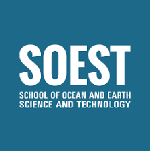
|
The Hawaii Ocean Time-series: 30th Anniversary Collection
31 October 2018 The 30th Anniversary of the Hawaii Ocean Time-series (HOT) program is being celebrated with a virtual issue of the academic journal Limnology and Oceanography. This volume of seminal papers from HOT published by the Association for the Sciences of Limnology and Oceanography (ASLO) on biogeochemistry, ocean physics, and plankton ecology is freely available. |

|
New drones help UH investigate Kīlauea eruption
18 September 2018 A group of scientists from the University of Hawai'i at Mānoa’s Center for Microbial Oceanography (C-MORE), which is within the School of Ocean and Earth Science and Technology (SOEST), has returned from a research cruise to study the effects of the Kīlauea eruption on the surrounding marine environment. |
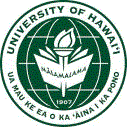
|
Ocean and climate research gets $9M boost
28 August 2018 The Hawai'i Ocean Time-series (HOT) program based at the University of Hawai'i at Mānoa has been awarded $9 million in new funding from the National Science Foundation to continue for another five years. Even more auspicious, this month marks the 30th anniversary of the endeavor that has led to so many discoveries in marine ecology and ocean and climate sciences. |

|
Lava That Destroys On Land Spurs New Life At Sea
16 August 2018 The Big Island’s lava-spewing volcano has torched neighborhoods, choked vegetation and desiccated a lake. But in the open ocean, scientists are finding surprising new evidence that Kilauea's apocalyptic ooze is breathing new life into the sea. |

|
UH investigating effect of Kīlauea eruption on ocean
microbes and ecosystem
12 August 2018 A rapid response team of scientists from the University of Hawai'i at Mānoa‘s Center for Microbial Oceanography: Research and Education (C-MORE) in the School of Ocean and Earth Science and Technology (SOEST) returned from a four-day expedition to investigate the effects of the Kīlauea volcanic eruption on marine life near Kapoho on Hawai'i Island and the surrounding areas. |

|
Monitoring and Tracking Ocean Microbes with LRAUVs
18 June 2018 In March and April of 2018, researchers from the University of Hawai'i at Manoa (UH Manoa) and the Monterey Bay Aquarium Research Institute (MBARI) deployed a small fleet of long-range autonomous underwater vehicles (LRAUVs) in the waters of the Pacific near Hawaii. These LRAUVs automatically collect and archive samples of seawater, enabling scientists to study and track ocean microbes with a level of detail that is unprecedented. |

|
Scientists say new self-driving robots could change
the face of open ocean research
10 April 2018 Scientists participating in a program based out of the University of Hawaii say they have made a major break-through on how they conduct ocean research. |
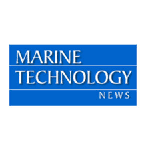
|
Scientists Set Record with Self-Driving Robots
9 April 2018 In a joint effort between the Simons Collaboration on Ocean Processes and Ecology (SCOPE), the Monterey Bay Aquarium Research Institute (MBARI), and Schmidt Ocean Institute (SOI), several long-range autonomous underwater vehicles (LRAUVs) have successfully completed their first voyage in the open ocean, obtaining data on the water column down to 250 meters, while autonomously collecting and archive seawater samples to capture microbial community dynamics in the oceans interior. |

|
These Underwater Robots Offer a New Way to Sample Microbes
From the Ocean
28 March 2018 The health of forests of underwater plankton have a big impact on the environment, and oceanographers are just starting to understand it. |

|
UH deploys self-driving undersea vehicles
26 March 2018 In concert with scientists at the Monterey Bay Aquarium Research Institute in California, UH marine scientists plan to deploy a small fleet of long-range, autonomous underwater vehicles that can collect and record seawater samples without humans at the helm. |

|
The Robot That Is Helping Unravel the Mystery of Ocean Microbes
21 March 2018 Ocean microbes are key to global carbon and oxygen cycles, but they aren’t well studied due to challenges observing them at the right time and place. Now researchers have developed a new autonomous robot and sampling device that could help crack the microbial code. |
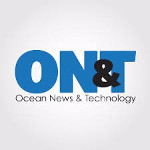
|
Self-Driving Robots Creating Snapshots of Ocean Microbes
19 March 2018 For the first time, scientists from the University of Hawai'i at Mānoa (UH Mānoa) and the Monterey Bay Aquarium Research Institute (MBARI) will deploy a small fleet of long-range autonomous underwater vehicles (LRAUVs) that have the ability to collect and archive seawater samples automatically. These new robots will allow researchers to track and study ocean microbes in unprecedented detail. |

|
New Underwater Vehicles to Study Ocean's Smallest Organisms
9 March 2018 SCOPE Co-Director Ed DeLong spoke on Hawaii Public Radio about the upcoming 2018 SCOPE-Falkor cruise. He said the study will not only lead to a better understanding of how the marine environment works and how it is changing - but will also test out new long-range autonomous underwater vehicles (LRAUVs). |

|
Self-driving robots collect water samples to create
snapshots of ocean microbes
7 March 2018 SCOPE science partners with MBARI engineering to deploy a small fleet of long-range autonomous underwater vehicles (LRAUVs) with a unique added feature - the ability to automatically detect ocean features AND collect seawater samples. This will allow SCOPE researchers more accurately explore the microbial world under the sea. |

|
HOT 300: Ocean climate change research sets benchmark
28 February 2018 Thirty years ago, SCOPE Co-Director Dave Karl started the Hawai'i Ocean Time-series (HOT) program. In February 2018, HOT completed its 300th cruise to Station ALOHA, making it one of the best sampled locations in the global ocean. Marian Carlson, SCOPE's Program Manager at the Simons Foundation, was on-board for the momentous occasion! |

|
Beyond the Lab: David M. Karl, Ph.D.
12 September 2017 Dave Karl, SCOPE co-director, shares what inspired him to become a scientist, what the key problems are he is working to solve, and what keeps him motivated. |

|
New gene catalog of ocean microbiome reveals
surprises
17 August 2017 SCOPE Co-Director Ed DeLong and his team have released the largest single-site microbiome gene catalog constructed to date. The catalog was created from water collected at Station ALOHA and will serve as a reference database for many of SCOPE's unique and innovative data sets. The database has also been made available to scientists worldwide through Prof. Bonnie Hurwitz's iMicrobe portal (Project: Station ALOHA Gene Catalogue v1). |

|
Dr. John Casey awarded a 2017 Postdoctoral Fellowship
from the Simons Foundation Life Science Program.
10 July 2017 John Casey recently received his PhD from the SCOPE Co-Director Dave Karl's lab at UH Manoa, and has been just awarded a 3-year postdoc fellowship from the Simons Foundation for his project, "Computational Biogeochemical Modeling of Marine Ecosystems." This award provides funds for lab and field experiments, as well as travel to collaboration labs. Congrats John! |

|
A new view of an old ocean
30 March 2017 From Dave Karl's original review in the journal Ecosystems (1999), to a new perspective published by Dave and Matt Church (available under publications). An article by the Gordon and Betty Moore Foundation describes new view as, "...one of a more dynamic open ocean with greater variability in its ecosystem processes." And quotes the article itself which states, "...the importance of integrating this new knowledge into conceptual paradigms and predictive models, is an enormous contemporary challenge with great scientific and societal relevance." |
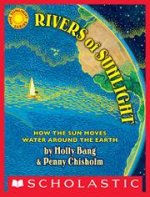
|
Rivers of Sunlight: How the sun moves water around the
Earth
31 January 2017 Penny Chisholm's "Rivers of Sunlight" illustrates how our sun moves water through Earth systems (atmosphere, ocean, and land). This is her latest edition to the "Sunlight" series of children's books, in collaboration with Molly Bang. |

|
Vitamin B-12, and a Knockoff Version, Create Complex
Market for Marine Vitamins
18 January 2017 University of Washington oceanographers, supported by the National Science Foundation and the Simons Foundation, have now found that vitamin B-12 exists in two distinct versions in the oceans. A microbe thought to be a main supplier of B-12 in the open oceans, cyanobacteria, is actually making a "pseudo" version that only its kin can use. |

|
Cobalamin (vitamin B-12), an essential nutrient for
all organisms, has a "psuedo" version - produced and used only by cyanobacteria.
18 January 2017 Even though all organisms require cobalamin (vit B-12), only a few marine microbes are capable of produing it, and not all cobalamin is created equal! Katherine Heal, a SCOPE graduate student in Dr. Ingalls lab at University of Washington, discovered that many cyanobacteria produce pseudocobalamin, which they can use as a cofactor, but other model organisms, like the marine diatom Thalassiosira pseudonana, can not. This work supports the notion that microbial communities in the oceans rely on a set of complex interdependencies for survival. |

|
SCOPE researchers explain the mysterious source of
methane in the surface ocean.
17 November 2016 The marine methane paradox, where the surface ocean has methane concentrations greater than the adjacent atmosphere, has puzzled scientists for many years because methane production was thought to require a low oxygen environment. A SCOPE-lead science team including Dan Repeta, Ed DeLong, Dave Karl, and several SCOPE postdocs (Sara Ferrón and Oscar Sosa), discovered that degradation of complex sugars, by microbes trying to extract phosphorus, also produces methane, ethylene, and propylene gasses. Given that methane is an important greenhouse gas, this discovery is important for our understanding of how marine microbes affect our climate. Find out more in their Nature Geoscience publication. |

|
SCOPE graduate student, John Casey, shares new
insight into the world's most abundant ocean microbe, Prochlorococcus.
15 November 2016 A computer model - developed by John Casey, a graduate student in SCOPE PI Dave Karl's lab, and collaborators - reveals that Prochlorococcus utilizes a previously unknown strategy to survive in phosphorus limited regions of the ocean. Over evolutionary time, some types of Prochlorococcus have reorganized their metabolic pathways to minimize the use of enzymes that require phosphate. Find out more in their mSystems publication. |

|
Joshua Weitz receives the Royal Society of Biology's
Postgraduate Textbook Prize
13 October 2016 Joshua's recent book - Quantitative Viral Ecology: Dynamics of Viruses and Their Microbial Hosts - has been selected by the Royal Society of Biology (London, England) for the Postgraduate Textbook Prize. The judges said: Beneath its unassuming plain green cover is a novel, readable and extensive scholarly work on viruses and their interactions. A superb introduction to a new field of research. |
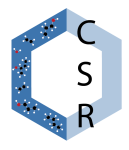
|
SCOPE's Dan Repeta and Ed DeLong featured in the
Chemistry of Microbiomes: Marine Seminar
9 October 2016 The Chemistry of Microbiomes: Marine Seminar (one of four seminars from the National Academies of Sciences, Engineering, and Medicine) was hosted by SCOPE's co-director Ed DeLong, who is also on the planning committee for the whole series, and SCOPE PI Dan Repeta, who was invited to present his work on biologically relevant iron, methane, and phosphorous in the oceans. Other presenters included Mark Hay (Georgia Tech) and Mak Saito (WHOI) |

|
Station ALOHA, a Window Into the World's Oceans
18 May 2016 A research site in the Pacific that is essential to the SCOPE makes its mark on microbial oceanography (by Ashley Yeager). |

|
David Caron writes for Nature's New & Views on
"Ocean science: The rise of Rhizaria"
20 April 2016 Dave was asked to comment on recent global ocean data that revealed Rhizaria, a diverse group of marine protists including many species that can form colonies greater than 1 meter in length, are in much greater abundance in the open ocean than previous thought. Turns out, our previous estimates were limited by methodology, an area where Dave is constantly stretching the boundaries with his SCOPE research. |

|
SCOPE's Elisha Wood-Charlson Featured in American
Society for Microbiology Magazine
February 2016 Elisha was interviewed by the ASM's Cultures Magazine, who was doing a special issue on microbes and climate change in conjunction with the 2015 COP21 meeting in Paris. Elisha stressed the importance of microbial processes in the ocean, and describe SCOPE's exciting mission - to measure, model, and predict interactions between ocean microbes and their environment, from the microsystem to ecosystem scales. |

|
Angelicque White awarded the 2016 Yentsch-Schindler
Early Career Award by the Association for the Sciences of Limnology and
Oceanography (ASLO)
January 2016 Angel was granted this award for "her groundbreaking, multidisciplinary research to improve our understanding of biological and physical relationships in the ocean, her dedication to develop and expand experiential learning opportunities for students, and her commitment to the promotion of underrepresented groups and engagement of the public in science issues." Side note: Matthew Church was the 2015 recipient. |
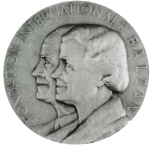
|
David Karl awarded the 2015 International Balzan
Prize for Oceanography
November 13, 2015 David Karl, co-director of SCOPE, was awarded a 2015 Balzan Prize in recognition of his fundamental contributions to the field of microbial oceanography. The award ceremony was on 13 November, 2015, in Bern, Switzerland. |

|
SCOPE's ocean benchmark, Station ALOHA, has been
designated a Milestones in Microbiology site
October 7, 2015 The American Society of Microbiology (ASM) has recognized Ocean Station ALOHA as a site that has made significant contributions toward advancing the microbial sciences. |

|
Tracking the Ocean's Circadian Rhythm
September 17, 2015 A Simons Foundation collaborative expedition aims to understand the daily interactions of the organisms at the base of the marine food chain. |

|
Studying the Ocean's Microbiome
July 20, 2015 A collaboration looking at the microorganisms in the seas aims to enhance our understanding of ocean processes and ecology. |

|
David Karl, SCOPE Co-Director, Elected to American
Academy of Arts and Sciences
April 27, 2015 David Karl, co-director of the Simons Collaboration on Ocean Processes and Ecology (SCOPE), was elected to the American Academy of Arts and Sciences (AAAS) on April 22. |

|
$40 million private gift is UH's largest
September 11, 2014 On June 16, UH Foundation had the honor of announcing the largest private gift to UH: a $40 million award from the New York-based Simons Foundation to Drs. David Karl and Edward DeLong, both National Academy of Sciences members and UH Manoa professors in the School of Ocean and Earth Science and Technology (SOEST). |

|
Largest ever gift to advance ocean research
July 21, 2014 With the largest private fund awarded in the university's history ($40 million), the School of Ocean and Earth Science Technology (SOEST) will partner with the Simons Collaboration on Ocean Processes and Ecology (SCOPE) to lead a research exploration into the world's largest environmental laboratory: the open ocean. |
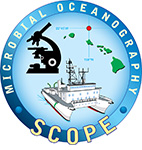
|
UH announces award by the Simons Foundation
June 16, 2014 On Monday 16 June 2014, the Simons Foundation announced the establishment of a new basic research program on the ecology of marine microorganisms. A press conference was organized by the University of Hawaii (UH) and the event was held at the UH's Marine Expeditionary Center alongside the research vessel Kilo Moana. |

|
The Simons Foundation donates $40 million to University
of Hawaii oceanography research
June 17, 2014 The University of Hawaii has been awarded the largest-ever private donation to fund oceanography research. The 40 million dollar donation came from the Simons Foundation. Dr. Edward Delong, co-director of the University of Hawaii Manoa Center for Microbial Organisms: Research and Education, is here on Sunrise with more details. |

|
University of Hawaii receives large private award
June 17, 2014 The Simons Foundation awarded nearly $40,000,000 to UH professors in the School of Ocean and Earth Science and Technology. |
 Kaunānā : The Research Publication of the University of Hawaii |
Simons Foundation funds UH microbial oceanography research
June 16, 2014 For decades now, the University of Hawai'i at Manoa has been at the forefront of microbial oceanography-the study of microscopic organisms, or microorganisms, in the sea. Because of the cutting edge research done at the university's School of Ocean and Earth Science and Technology and C-MORE, the Center for Microbial Oceanography: Research and Education, UH Manoa was awarded one of the largest one-time donations the UH has ever received, $40 million from the Simons Foundation. |

|
Largest ever private award to UH funds microbial
oceanographic research
June 16, 2014 The School of Ocean and Earth Science and Technology and the Center for Microbial Oceanography: Research and Education has been awarded $40 million from the Simons Foundation. |

|
N.Y. foundation gives University of Hawaii
$40M - largest private foundation gift ever
June 16, 2014 The Simons Foundation, a New York-based private foundation that seeks to advance research in basic science and mathematics, has given the University of Hawaii at Manoa $40 million - the largest gift of its kind the university has ever received - for marine life research. |

|
UH receives $40 million gift for oceanography research
June 16, 2014 University of Hawaii researchers will lead a new $40 million oceanography research project that represents the largest-ever philanthropic gift to UH. |

|
UH receives largest ever private award for
ocean research
June 16, 2014 Forty million dollars was awarded by The Simons Foundation to Edward DeLong and David Karl, professors in the School of Ocean and Earth Science and Technology. The award is to fund the work of the two co-directors to lead the Simons Collaboration on Ocean Process and Ecology, or SCOPE. The program will use the field site Station ALOHA, located a little more than 62 miles north of Oahu. |

|
Simons Foundation Announces Simons Collaboration on
Ocean Processes and Ecology
June 16, 2014 The purpose of SCOPE is to advance our understanding of the biology, ecology and biogeochemistry of microbial processes that dominate Earth's largest biome: the global ocean. This collaborative effort will measure, model and conduct experiments at a model ecosystem site located 100 km north of Oahu that is representative of a large portion of the North Pacific Ocean. |